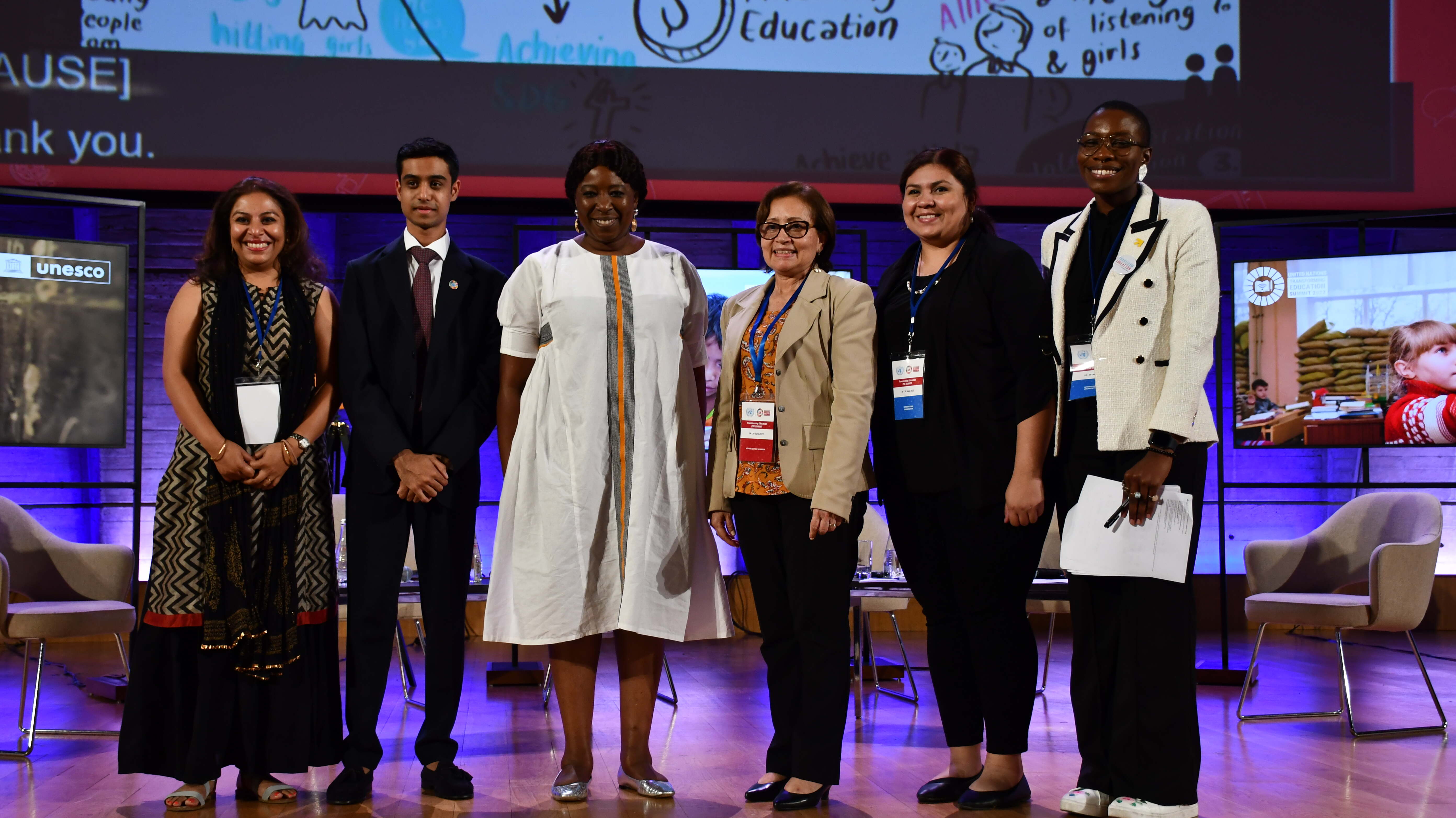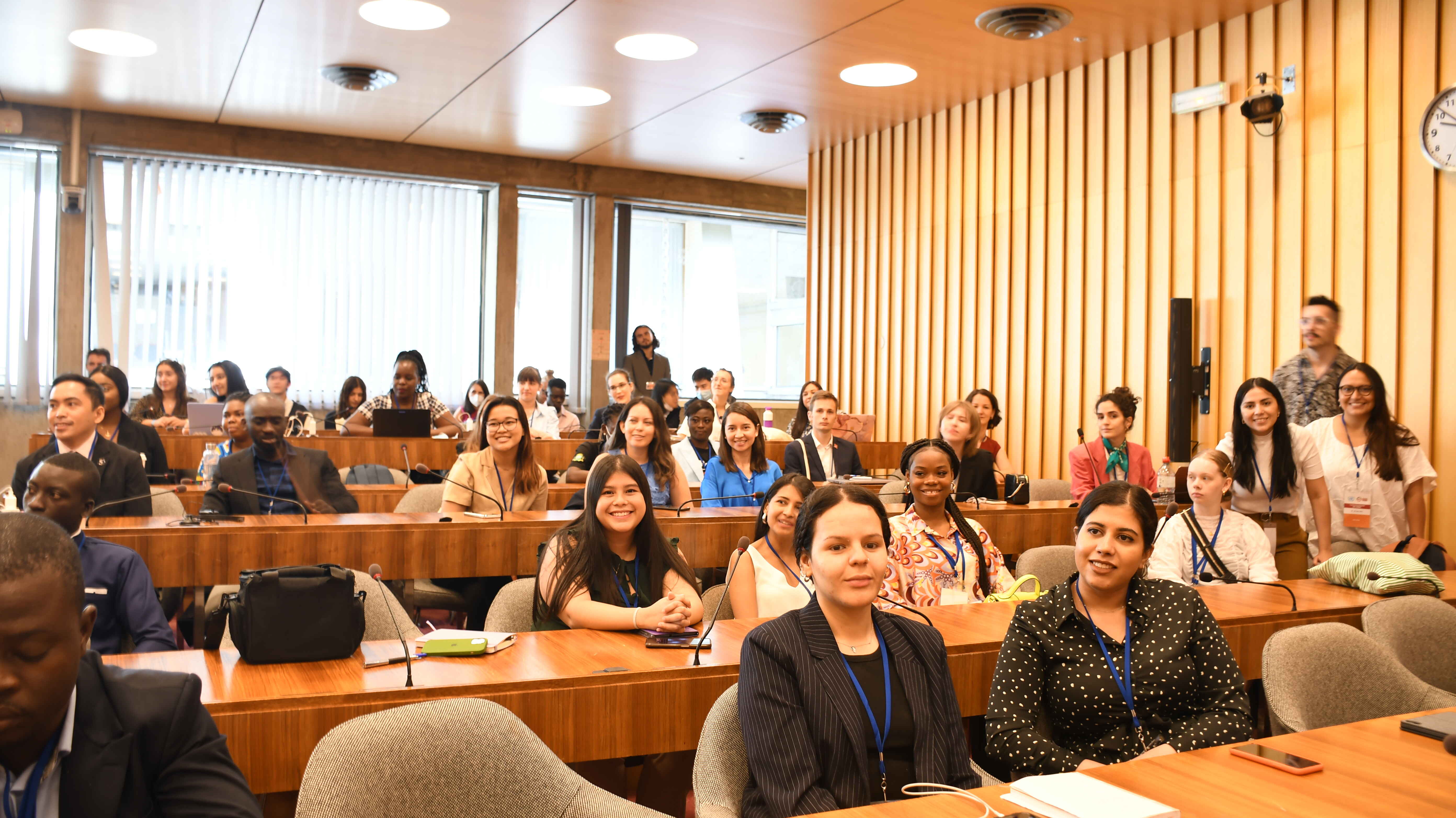GCE at the Transforming Education Pre-Summit

GCE at the Transforming Education Pre-Summit
“Power will never be given on a silver platter. We still work in systems that are still colonialist and patriarchal, so spaces will not be easily created. The best way for youth to fight for spaces is to build coalitions, learning from experiences of other youth activists and those with access to decision-makers.” Jayathma Wickramanayake, UN Secretary-General's Envoy on Youth
Ministers and vice-ministers of education of 154 countries and nearly 2000 participants, including young activists, experts, civil society and the private sector, came together at the UNESCO headquarters in Paris from June 28th - 30th to discuss transforming education inspired by the rallying call from young people.
GCE and civil society partners garnered momentum for the need to include youth and students in all tables and solutions as leaders. They amplified the need for increased education financing during an integral side event.
The pre-summit sessions focused on the agenda for transforming education across the spectrum, including inclusivity, quality of learning, teachers and pedagogy, digital connectivity, the importance of emergency education and adequate and innovative financing.
It was a pivotal moment for youth and student networks and activists as UN Deputy Secretary-General Amina J. Mohammed called on the youth to rally toward building a global movement for education transformation. The Youth Forum and Global Engagement Day on 28 June 2022 generated momentum and amplified young people's voices and ideas in decision-making. It created space for intergenerational dialogues between youth and key decision-makers, ensuring that the aspirations of young people for the future of education are brought to the forefront.
UNICEF Executive Director Catherine Russell emphasised the need to challenge youth and young people to be at the forefront, lamenting, "We cannot transform education for the generation without engaging that generation”.
The importance of growing digital education was also at the forefront. Sierra Leonean Minister of schooling, H.E. Mr David Sengeh, focused on the role of digital innovations and technology in transforming education and how youth can be leaders in finishing solutions to digital divides. He emphasised that connectivity should be a right, not a privilege.
Inclusivity and ensuring all voices are represented, including those of young people with disabilities, was also a key theme during the youth forum. Ms Renate Adriaansens, President of Young Feminist Ambassadors, Netherlands emphasized the perspective of youth and students with disabilities noting that “It is not disabilities that make us disabled, but rather it is accessibility in education and the need to create actual structures to address inequalities.”
Education in Crisis and Emergency contexts was at the helm of the discussions to catalyse action for children and young people whose education is interrupted by conflict and climate emergencies. Vicky Mogeni from GCE presented on the Education in Emergencies Campaign highlighting the campaign’s approach to bringing the voices and stories of people affected, particularly young people, to the centre of the debate and ensuring education for women and girls and children with disabilities is prioritised.
The Youth forum concluded with a presentation and overview of the Youth Declaration and paving the way for the summit in September. Ms Doris Mwikali, SDG4Youth Representative, highlighted the need to engage stakeholders outside the education sector to foster partnerships and awareness toward sustainable transformation.
Ms Jayathma Wickramanayake, UN Secretary-General's Envoy on Youth concluded with a concrete step toward youth decision-making; the Secretary General’s office plea to UN member states to include youth delegates in their national delegations at the TES summit in September and encouraged young people to hold their national governments to account on this.
Developed by the Office of the Secretary-General's Envoy on Youth together with the TES Secretariat hosted by UNESCO, the Youth Declaration will gather young people’s views, recommendations and actions on transforming education and it will be presented to the Secretary-General as young people’s inputs to the Chair Summary of the Transforming Education Summit.
More information about the Youth Declaration process and consultation.
Advocating for increasing financing for education is a fundamental goal of GCE. Through a side event led by Vernor Munoz, head of policy advocacy, governments' commitment and legal obligation to fund education were lamented. Further emphasised by David Archer from Action Aid was that this is a real moment to engage youth constituencies rather than individuals in a tokenistic way. Nafisa Baboo, Light for the World, also highlighted a tool for enabling and enhancing education for children with disabilities noting that “All means All”.
Governments are urged to consolidate national consultations as they prepare for the September Summit, where Heads of State and Governments will announce their national commitments to transforming education.
More themes and key messages in the TES Pre Summit closing press release.
By Vicky Mogeni, Youth and Students' Engagement & Learning Coordinator



